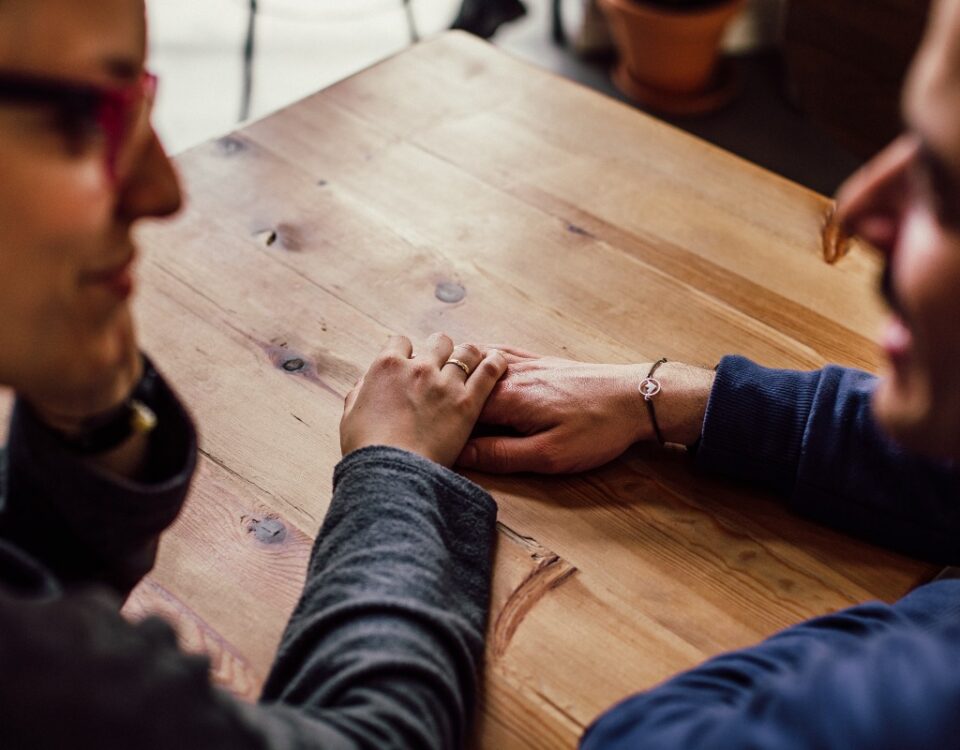
How to Stay Motivated When You’re Depressed
April 9, 2021
Coping with Post-Traumatic Stress Disorder
April 16, 2021Most people tend to associate the concept of anxiety with racing thoughts and feelings of being overwhelmed by worry. While symptoms of stress and worry are some of the most common signs of anxiety, they are by no means the only ones. In some cases, the physical symptoms of anxiety can be far worse than the mental and emotional symptoms. A person in the middle of an anxiety episode or panic attack can experience stomach aches, headaches, elevated heart rate, high blood pressure, and muscle pain.
Like with the mental symptoms, there are plenty of effective ways to ease the physical complications that stem from anxiety. You can carry these ideas and methods with you for as long as you need them.
Determining Whether You Have a Problem with Anxiety
Many people experience symptoms of anxiety to a certain degree under stressful circumstances. This doesn’t necessarily mean that you have an anxiety disorder. It is quite normal to feel anxious before speaking in front of a large crowd, meeting new people, or dealing with an unfamiliar or uncomfortable situation. You can know that it’s time to consider talking to a professional when anxiety and its symptoms begin to negatively affect your daily life. A healthcare provider can help you rule out any other medical problems that could cause the same symptoms. Once they are confident that your physical symptoms have no other medical cause, you can begin to accept that you’re dealing with serious anxiety and begin to decide how to manage it. Keep in mind that there are no definitive medical tests for anxiety, though there are different psychological screenings.
Your doctor will investigate your physical and emotional symptoms by asking questions like ”How long have you had symptoms?” and “Have the symptoms increased during specific events?” The severity of your anxiety may fluctuate depending on what’s happening in your life. Using certain drugs and substances may increase the level of anxiety that you experience. In extreme cases, anxiety can cause a person to start having violent thoughts or detach from reality. Discuss your condition with your doctor to ensure that you receive an accurate diagnosis and the appropriate treatment course.
When Anxiety Causes Panic Attacks
Anxiety can take many forms. In some people, intense anxiety can cause panic attacks that include physical and mental side effects. Panic attacks can be very severe. Physical symptoms can include difficulty breathing, bodily numbness, and chest pain — easily mistaken for a more severe medical emergency, such as a heart attack. This makes it especially important to discuss your problems with a professional and ensure that you’ve been properly evaluated. Physical reactions are not a problem with your heart or lungs; they’re a sign that your body is responding to stress by letting you know that it feels threatened.
When your body is in danger, you may begin to breathe rapidly as your lungs try to get more oxygen to enable you to escape as quickly as possible. This is what happens when someone has a panic attack, and they feel like they can’t breathe properly. Your body is supposed to do this when there is an emergency. If your body is constantly in fight or flight mode, you’ll experience the unhelpful mental and physical symptoms that comprise an anxiety disorder.
The human body isn’t always supposed to be on alert; having problems with your emergency signal can cause harm to your internal systems. Your muscles tense up due to stress or anxiety, and being in a constant state of stress means that your muscles are constantly tense, leading to soreness, headaches, and migraines.
Practicing Self-Care to Ease Anxiety
The type of treatment that you receive for anxiety will depend on the symptoms that you experience. Most people treat anxiety using medication, therapy, or a combination of the two. There are also many things you can do to take better care of yourself. Try being more active and get regular exercise. Staying active can help reduce stress and improve your physical health. If you cannot be active often, simply sitting outside frequently can be enough to keep you calm.
Avoid alcohol, caffeine, and nicotine. Indulging in these substances can significantly worsen your anxiety. Anything with caffeine can keep you from relaxing, which you will need if you struggle with frequent anxiety. Practices like yoga and meditation can help you focus on your breathing and lower your heart rate. At any given moment, you want to make sure you are keeping aware of ways to maintain mental stability, whether or not you are currently feeling anxious.
Anxiety can have a wide range of harmful effects on your mind and body. The symptoms of anxiety can appear similar to more severe health complications, making it important to have regular communication with your healthcare provider. If left unmanaged, anxiety can cause chest pain, shortness of breath, migraines, and full-blown panic attacks. Learn about which coping mechanisms work best to ease your anxiety symptoms. Practice self-care methods and discuss forms of treatment with your doctor. If anxiety is impacting your life in a major way, don’t hesitate to reach out for professional help. At Kimberly Center in Fort Myers, Florida, our mission is to help you overcome your unique challenges and live the life you deserve. We provide long-term and short-term solutions for mental health problems and addiction. If your anxiety or stress has led to substance abuse or destructive behavior, get the help you need today. Contact us at (855) 452-3683 to learn more.




